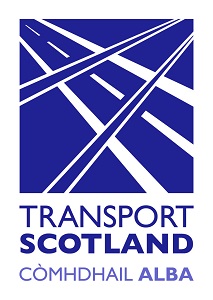Membership of the National Smart Ticketing Advisory Board
Feedback updated 16 Mar 2022
We asked
We consulted on membership (including appointment, removal and replacement of members), remuneration of members and the process through which the Board makes decisions. The purpose of this consultation was to gather opinion on this matter, providing us with an insight into the views of a wide range of stakeholders.
You said
Overall, there was support for the suggested framework for the National Smart Ticketing Advisory Board, and many of the responses provided very detailed insights into the practical considerations of establishing such a board. The responses received were largely in favour of establishing NSTAB, with only a single response opposing ‘smart ticketing’ as a general policy area.
We did
We will now proceed with the establishment of this board, informed by the responses received to date. This will include seeking Ministerial approval for the recomendations arising from the consultation, and creating new statute to establish the board.
Results updated 16 Mar 2022
Overall, there was support for the suggested framework for National Smart Ticketing Advisory Board ("NSTAB"), and many of the responses provided very detailed insights into the practical considerations of establishing such a board. The responses received were largely in favour of establishing NSTAB, with only a single response opposing ‘smart ticketing’ as a general policy area. On the basis of this consultation, we have made a range of recommendations to Scottish Ministers on this matter, which are detailed in the link below.
Links:
Published responses
View submitted responses where consent has been given to publish the response.
Overview
Smart ticketing is an important element of a modern public transport system and is increasingly prevalent in major cities in the UK and in countries around the world. During 2017, Transport Scotland sought the views of stakeholders and the wider public through a consultation into various aspects of smart ticketing, such as the scope of smart ticketing schemes, what forms of transport should be included and what arrangements should be in place to oversee the development of smart ticketing in Scotland. Most respondents thought that a consistent smart payment option would encourage the use of public transport and highlighted the convenience of not having to use cash.
Respondents also felt that Transport Scotland should establish a single governance group so that the technology implemented across Scotland for smart ticketing schemes is controlled. They also felt that this group should be establishe d formally and be supported by legislation. These views were informed the development of the Transport (Scotland) Act 2019.
During the development of the Transport (Scotland) Act 2019, consideration was given as to how a formal governance body for smart ticketing should be established and what role Scottish Ministers should play. It was decided that a formally constituted body, supported by legislation, would allow Ministers to set out their expections for the group, such as membership, frequency of meetings and what the outputs should be. Therefore, the legislation gives Scottish Ministers the power to establish an advisory board be known as the National Smart Ticketing Advisory Board (NSTAB).
Why your views matter
The legislation outlined above requires Scottish Ministers to consult with a range of stakeholders, as well as any other interested parties, before the National Smart Ticketing Advisory Board can be established. In particular, it requires consultation on membership (including appointment, removal and replacement of members), remuneration of members and the process through which the Board makes decisions. The purpose of this consultation is therefore to fulfil this requirement, as well as providing an insight into the views of a wide range of stakeholders, partners and others.
What happens next
The findings from this consultation will be used to develop the legislation that supports the National Smart Ticketing Advisory Board. Depending on the findings, there may be further engagement with stakeholders during the course of late 2021/ early 2022.
Interests
- Transport


Share
Share on Twitter Share on Facebook